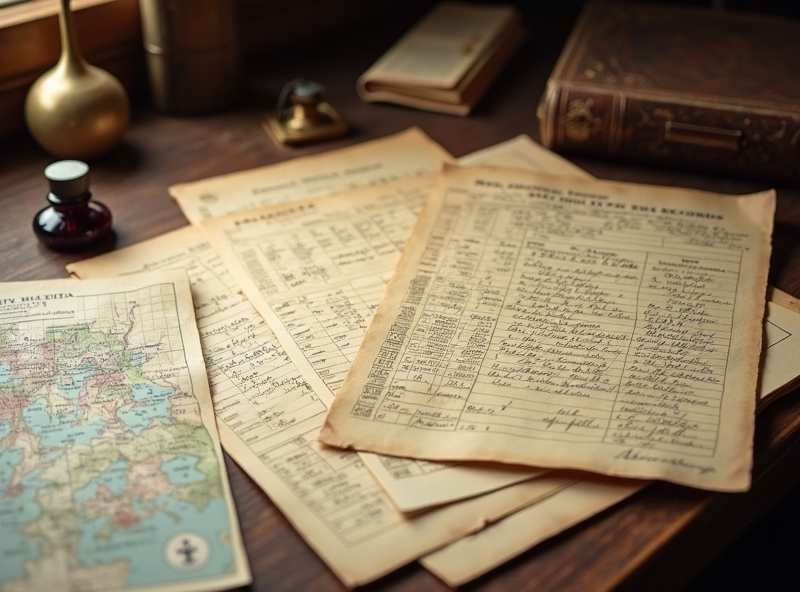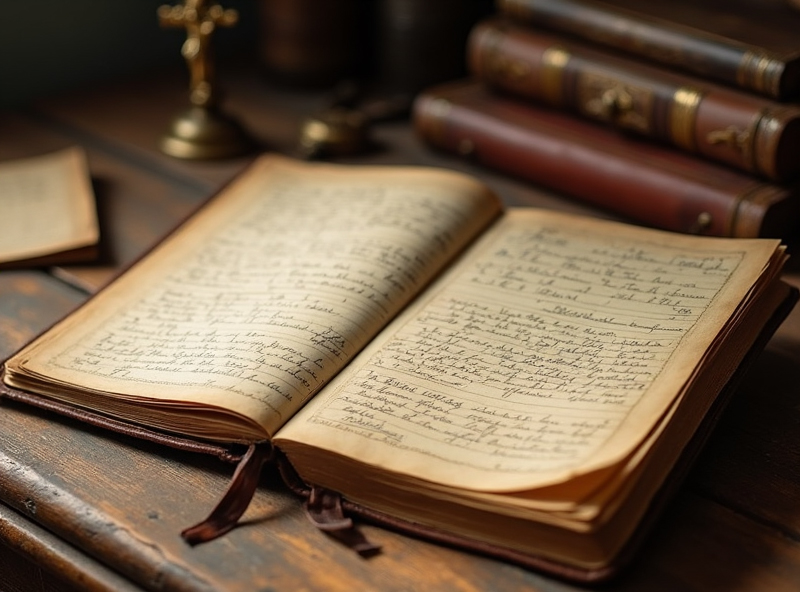Most genealogists would start with an easy source: census records, birth certificates, marriage licenses, and the like. But what if you stall out there and cannot find the next piece of the puzzle? That’s where church and parish records come into play. These lesser-known resources are simply treasure troves of information, often bringing people back to life in ways beyond anything documented elsewhere.
This guide will walk you through how to use church and parish records to discover treasures in your family history. Whether it is baptism records, marriage registers, or burial logs, sometimes church documents can be key to unlocking the missing pieces of information in your research.
Why Church and Parish Records Are So Valuable
This meant that much of the recording of those key life events was left to churches when civil registration hadn’t been established in most countries. For over a millennium, the influence of the church dominated people’s lives. They kept very accurate records of baptisms, weddings, and funerals. In some cases, these predate governments’ record-keeping by hundreds of years.
Even when civil registration became more general, congregations often continued keeping their own registers. Therefore, church and parish records are a very important source, especially for genealogical researchers interested in ancestors from time periods or regions where official records are not available or not at all complete.
These may include records of:
- Baptisms: Most baptism records provide the child’s full name, the date of baptism, and the names of the parents. Occasionally, godparents are also included as additional leads to family connections.
- Marriages: Church marriage registers mostly give the names of the bride and groom, the date of the wedding, and sometimes details of both parents or names of witnesses.
- Burials: In some cases, burial records can be particularly rich in information. They may list the deceased’s name, date of burial, age or cause of death, and sometimes even grave location. This can be helpful if you have plans to visit the cemetery.
Be Clear About Your Intentions
Before you begin asking, discuss with your family why you are asking them these questions. Let them know that you are doing research on your family history to learn who you are and to safeguard the stories of generations before you. Some will not open up if they feel you are just being nosy, so they will appreciate your reason for asking.
For instance, you could phrase it: “I am working on a family tree with an intention of gaining as much information as I can about our family history. These stories should remain in the families.”
This doesn’t just outline the purpose but also says that their stories are valuable and important.

How to Find Church and Parish Records
Church and parish records are not always easy to locate, but a little patience and the proper approach will surely help you obtain what you need.
Begin Locally
Knowing the town or village your ancestors lived in, start with local churches. Many parishes retain their historic records and some even have digital copies. If they are not online, do not be reluctant to contact the church. Local priests or parish clerks may be able to help you gain access to the records or point you in the direction of a diocesan archive that should be able to help you.
Diocesan and Regional Archives
If the church has moved or does not keep the records anymore, they might be found in a diocesan or regional archive. Many of these archives have catalogs online and even digital versions of their records. If you can’t find what you are looking for online, it is best to go straight to the archive. Archivists are extremely knowledgeable and may be able to direct you to other records that may also be useful for your search.
National Archives and Libraries
At times, church records are kept at the national archives or libraries, where perhaps the parish is extinct. Most European countries, for example, have central depositories that store church records going back centuries. Check on the national archive website in the country you’re researching; they often have digitized collections available online or advice on how to locate those that aren’t there.
Online Genealogy Websites
Many online genealogy platforms, such as Ancestry.com, have vast collections of church and parish records. The databases can be a great time-saver; you can find any name or dates across a broad sweep of regions. Just realize that not everything is digitized, so if you can’t find it online, try to find it offline as well.
What You Can Discover from Church and Parish Records
Besides dates and names, church records have a lot of meaning. These could be some of how these records enhance your knowledge of your family’s history:
Family Connections
The church records often include information about godparents and witnesses. Extended family members may be noted as well. Many godparents were close relatives or close friends. You might discover relatives you never knew existed by learning more about them.
Occupations and Social Status
At times, church records will give an occupation for the person being recorded; this is most frequently seen in marriage or burial records. This may help you gain some clues about the social status or profession of your ancestors to better understand life circumstances a little bit.
Migration Clues
When you get records that indicate your ancestors had married or baptized in one town but later settled in another, it might be a migration trace. A pattern like this in the church records will be one thing that leads you to different regions where they moved and why they relocated.
Religious Practices and Cultural Insights
Church records can also provide you with information regarding your ancestors’ religions. They could have been devout Catholics, Protestants, or otherwise affiliated with some religious denomination. Understanding their religious affiliations will give you a better sense of the world they lived in and the cultural influence reigning over their lives.

How to Derive Maximum Benefit from Church and Parish Records
While church and parish records are crucial, they can also be quite challenging to navigate. Here are some tips to increase the yield of your research:
- Watch for variations in spelling of names: Often a name will appear very differently in church records than on other documents, particularly if your ancestors were foreigners or from non-English speaking countries. Don’t be afraid to be flexible with spellings in your search.
- Study Latin: Most of these older records, especially in Catholic parishes, were written in Latin. Learning some of the most commonly used Latin words in baptismal, marriage, and burial records allows you to decode much more of the information.
- Be patient: most church records will be handwritten, and you can expect to see signs of old-fashioned script, ink fade, etc. Enjoy the pleasure of sifting through these documents. Don’t hesitate to ask for assistance if it becomes too difficult to read.
Final Thoughts
Church and parish records are one of the prized possessions of genealogists, which provide information about your ancestry that you may not have anyplace else. Everything, starting from baptism and marriages through burials, is recorded in these documents. Tapping into these other, so-called “hidden” genealogy resources will unlock new chapters of your family’s history and give a much better insight into your family’s past.
So, the next time the roadblock appears in your research, remember to look towards the church. It might just be the key to unlocking your family history.
